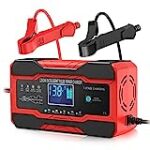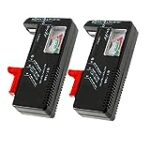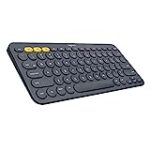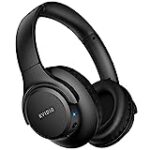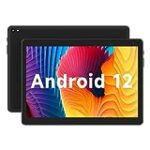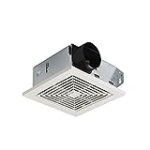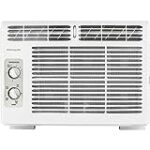🌅 Introduction
Welcome to our comprehensive charge controllers buying guide! If you’re in the market for a charge controller, you’ve come to the right place. Charge controllers are essential components in solar power systems, regulating the flow of electricity from solar panels to batteries. Whether you’re a seasoned solar enthusiast or just starting your renewable energy journey, we’re here to help you make an informed decision. In this guide, we’ll explore the different types of charge controllers, their features, and factors to consider before making a purchase. So, let’s dive in and find the perfect charge controller to maximize the efficiency and longevity of your solar setup!
🏆 Our Top 5
- 【12V/24V Automatically Detect】 Automatically detects the voltage of the battery system (for non-lithium batteries) and adjusts the charging parameters accordingly, ensuring that the battery is charged safely and efficiently.
- 【Full System Protection】 Designed to safeguard your solar system. It provides a comprehensive and reliable safeguard for your equipment and devices protection for overcharging, over-discharging, short-circuit, overload, reverse polarity, reverse current, and temperature compensation, keeping your devices and systems running smoothly and safely.
- 【Multiple Types of Charging Ports】 Integrated with 5V 2A USB ports, allowing you to conveniently charge your phones, tablets, and other USB-powered devices directly from the controller without the need for an additional power source or adapter. With a variety of charging options, this charge controller is perfect for those who need flexibility in their charging solutions.
- 【Diverse Load Control】 Multiple load control modes provide unparalleled flexibility and maximum efficiency when it comes to managing your energy usage. Wanderer 10 can adapt to your specific load requirements by set up parameters directly from the controller.
- 【Extremely Low Self-Consumption】 Boasts an extremely low self-consumption feature, making it an energy-efficient and practical solution for off-grid power systems. With its low self-consumption rate, the charge controller consumes minimal power from the battery, allowing you to maximize the efficiency and lifespan of your power system.
- Fit for solar Panel: 900W(12V);1700W(24V);2700W(36V);.3400W(48V);Max input Voltage:150V PV;MPPT best working voltage range:DC18V-DC80V(12V);DC30V-DC100V(24V);DC65V-DC150V(48V)
- Support 4 charging options: Sealed Gel AGM Flooded Lithium Battery,User-defined, 12V 24V 48V Auto,36V need to be ajusted by yourself
- The tracking rate of maximum power is ≥99% and the maximum conversion rate is >98%
- LCD Display---clear to see operating data and working condition, Real-time energy statistics function with Multiple load control modes,Mppt solar charge controller Display the daily power generation curve and current curve.
- Multiple protection against overcharge, over discharge, over load, short circuit, reverse polarity, over heat and battery under voltage
- SMART SOLAR CHARGE CONTROLLER: Solar charge the smart way with the Victron Energy SmartSolar MPPT charge controller, to ensure that every ray of available sunlight is converted into usable energy, while optimizing battery longevity.
- SPEED & EFFICIENCY: With lightning-fast optimum power point tracking and intelligent charge algorithms the Victron MPPT solar charge controller makes sure you always get the maximum possible power output, even when your solar panels are partially covered in shade.
- SYNCHRONIZED CHARGING: Multiple SmartSolar MPPT charge controllers can synchronize to behave as one, simultaneously switching through different charge stages to ensure battery longevity and system wide energy optimization.
- CONNECTIVITY: The VictronConnect app lets you connect with your system to gain insight into real-time data and 30-day performance history. Easily configure devices with battery presets, change settings, update firmware and set alarms to tailor your system to your every need.
- INTELLIGENT LOAD OUTPUT: Power devices directly and securely from your solar charger. Configure the voltage at which a load should disconnect and rely on the MPPT charge controller to automatically disconnect the loads if the battery voltage drops too low.
- 【UPGRADED SOLAR CONTROLLER】This solar charge controller helps you manage the working of solar panels and batteries in solar systems automatically with the build-in industrial microcontroller. You don't need to reset it when the battery runs out cause it will memorize various parameters set by the user.
- 【WIDE COMPATIBILITY BY AUTOMATIC ADAPTATION】Compatible with 12V and 24V systems (automatic adaptation, depends on your systems's voltage, no manual adjustments required). A little amplitude voltage deviation is normal. You can also charge your mobile phone, tablet, and PC through the Dual USB output 5V/2.5A (max).
- 【COMPATIBLE BATTERY TYPE】This solar controller is ONLY suitable for various Lead-acid batteries (including open, sealed, colloid, etc.) Please DO NOT charge to lithium or nickel-metal hydride batteries, etc. Auto-recognizing battery voltage function can protect the battery from misuse and better control the charging process. Note: When installing the controller for the first time, please ensure the battery is fully charged to recognize the battery type correctly.
- 【SAFE TO USE】With Intelligent protection against overcurrent, short-circuit, open-circuit, inverse, low voltage, and overcharge, all of which are automatic recovery types, do not damage the controller. It also has a dual MOS anti-backflow circuit and low heat. This 30A solar charge controller will help you improve the system efficiency and prolong the battery life. But still note to install the controller on a flat, well-ventilated surface.
- 【LCD DISPLAY】Let you know the working status and data with the LCD. The regulator equips load time control and a manual setting function, so you can switch modes and configure parameters conveniently. A good choice for use at home, industrial, commercial, etc. See the instruction manual for specific parameter settings and adjustment methods.
- SMART SOLAR CHARGE CONTROLLER: Solar charge the smart way with the Victron Energy SmartSolar MPPT charge controller, to ensure that every ray of available sunlight is converted into usable energy, while optimizing battery longevity.
- SPEED & EFFICIENCY: With lightning-fast optimum power point tracking and intelligent charge algorithms the Victron MPPT solar charge controller makes sure you always get the maximum possible power output, even when your solar panels are partially covered in shade.
- SYNCHRONIZED CHARGING: Multiple SmartSolar MPPT charge controllers can synchronize to behave as one, simultaneously switching through different charge stages to ensure battery longevity and system wide energy optimization.
- CONNECTIVITY: The VictronConnect app lets you connect with your system to gain insight into real-time data and 30-day performance history. Easily configure devices with battery presets, change settings, update firmware and set alarms to tailor your system to your every need.
- INTELLIGENT LOAD OUTPUT: Power devices directly and securely from your solar charger. Configure the voltage at which a load should disconnect and rely on the MPPT charge controller to automatically disconnect the loads if the battery voltage drops too low.
🤔 How to choose?
1. Compatibility
When choosing a charge controller, it is crucial to consider its compatibility with your solar panel system. **Not all charge controllers are designed to work with every type of solar panel**, so it is important to check the specifications and ensure that the controller you choose is compatible with your panels. For example, if you have a 12V solar panel system, you will need a charge controller that can handle 12V input.
2. Type of Charge Controller
There are three main types of charge controllers: PWM (Pulse Width Modulation), MPPT (Maximum Power Point Tracking), and basic on/off controllers. Each type has its own advantages and disadvantages, so it is important to understand the differences before making a decision. **PWM charge controllers are more affordable and suitable for smaller systems**, while **MPPT charge controllers are more efficient and ideal for larger systems**. Basic on/off controllers, on the other hand, are the simplest and least expensive option, but they lack the advanced features of PWM and MPPT controllers.
3. Maximum Current and Voltage
The maximum current and voltage ratings of a charge controller are important factors to consider. **The maximum current rating should be higher than the maximum current output of your solar panels** to ensure that the controller can handle the power generated. Similarly, **the maximum voltage rating should be higher than the maximum voltage output of your solar panels**. It is important to choose a charge controller that can handle the maximum current and voltage of your system to prevent damage and ensure optimal performance.
4. Load Control
Some charge controllers come with load control features, which allow you to connect and control DC loads such as lights or fans. This can be particularly useful if you want to power appliances directly from your solar panels. **If you plan to use your solar panels to power DC loads, look for a charge controller with load control capabilities**. This will allow you to connect and control your loads without the need for additional equipment.
5. Monitoring and Protection Features
Monitoring and protection features are essential for the longevity and efficiency of your solar panel system. Look for charge controllers that offer features such as **battery temperature compensation, overcharge protection, short circuit protection, and reverse polarity protection**. These features will help protect your batteries and other components from damage and ensure that your system operates safely and efficiently.
In conclusion, choosing the right charge controller is crucial for the performance and longevity of your solar panel system. Consider factors such as compatibility, type of charge controller, maximum current and voltage ratings, load control capabilities, and monitoring and protection features. By taking these factors into account, you can ensure that you select a charge controller that is suitable for your specific needs and maximizes the efficiency of your solar panel system.
💡 What to Look for in a charge controllers?
1. Compatibility: Ensuring a Perfect Match
When searching for a charge controller, compatibility should be at the top of your checklist. It is crucial to find a controller that is compatible with your specific solar panel system.
Different charge controllers are designed to work with different types of solar panels and battery banks. For instance, if you have a 12-volt solar panel system, you will need a charge controller that can handle 12 volts. Similarly, if you have a lithium-ion battery bank, you will need a charge controller that is compatible with lithium-ion batteries.
Investing in a charge controller that is not compatible with your system can lead to inefficiencies and potential damage to your equipment. Therefore, it is essential to carefully read the specifications and ensure that the charge controller you choose is a perfect match for your solar panel system and battery bank.
2. Charging Capacity: Meeting Your Energy Needs
The charging capacity of a charge controller is another critical factor to consider. It determines how much energy your solar panel system can generate and store in your battery bank.
The charging capacity is typically measured in amps and is directly related to the size of your solar panel system. A larger solar panel system will require a charge controller with a higher charging capacity to handle the increased energy production.
It is important to choose a charge controller with a charging capacity that matches your energy needs. If you have a small off-grid cabin, a charge controller with a lower charging capacity may be sufficient. However, if you have a larger residential or commercial solar panel system, you will need a charge controller with a higher charging capacity to meet your energy demands.
3. Advanced Features: Enhancing Performance and Protection
In addition to compatibility and charging capacity, it is worth considering the advanced features offered by different charge controllers. These features can enhance the performance and protection of your solar panel system.
Some charge controllers come with built-in MPPT (Maximum Power Point Tracking) technology, which maximizes the energy output of your solar panels. Others offer temperature compensation, which adjusts the charging voltage based on the temperature to prevent overcharging or undercharging of your batteries.
Furthermore, some charge controllers provide advanced protection features such as overvoltage protection, short-circuit protection, and reverse polarity protection. These features safeguard your solar panel system and battery bank from potential damage caused by voltage spikes or electrical faults.
By considering these advanced features, you can choose a charge controller that not only meets your basic requirements but also provides additional benefits to optimize the performance and longevity of your solar panel system.
🔍 How we picked?
1. Understanding the Importance of Charge Controllers
Charge controllers are an essential component of any solar power system. They regulate the flow of electricity from the solar panels to the batteries, ensuring that the batteries are charged efficiently and preventing overcharging or damage. Without a charge controller, the batteries could be at risk of being overcharged, which can lead to reduced battery life and potential safety hazards. Therefore, choosing the right charge controller is crucial for the optimal performance and longevity of your solar power system.
2. Factors to Consider When Choosing a Charge Controller
When selecting a charge controller, there are several key factors to consider to ensure you make the right choice for your specific needs:
a. System Voltage and Current Capacity: It is important to match the charge controller’s voltage and current capacity to that of your solar panels and batteries. This ensures compatibility and efficient charging. **Choosing a charge controller with a higher current capacity than your system requires can provide room for future expansion.**
b. Type of Charge Controller: There are three main types of charge controllers: PWM (Pulse Width Modulation), MPPT (Maximum Power Point Tracking), and basic on/off controllers. PWM controllers are suitable for smaller systems, while MPPT controllers are more efficient and can handle higher voltage and current. Basic on/off controllers are the most affordable option but lack the advanced features of PWM and MPPT controllers.
c. System Size and Load Requirements: Consider the size of your solar power system and the power requirements of your appliances or devices. This will help determine the appropriate charge controller size and capacity. **If you have a larger system or high-power appliances, an MPPT charge controller may be the best choice to maximize energy harvest.**
3. Our Selection Process
At [Company Name], we understand the importance of choosing the right charge controller for your solar power system. Our team of experts has carefully researched and evaluated a wide range of charge controllers to provide you with the best options on the market. We have considered factors such as efficiency, reliability, user-friendliness, and value for money. **We have also taken into account customer reviews and feedback to ensure that our selection meets the needs and expectations of our customers.**
By considering the system voltage and current capacity, type of charge controller, and system size and load requirements, you can confidently choose the right charge controller for your solar power system. At [Company Name], we are committed to helping you make an informed decision and providing you with the best charge controller options to optimize the performance and longevity of your solar power system.
💬 Frequently asked questions about charge controllers
1. What is a charge controller and why do I need one?
A charge controller is a crucial component in any solar power system. Its main function is to regulate the flow of electricity from the solar panels to the batteries, ensuring that they are charged efficiently and safely. Without a charge controller, the batteries can become overcharged or damaged, leading to reduced battery life and potential safety hazards. In short, a charge controller is essential for optimizing the performance and longevity of your solar power system.
2. What types of charge controllers are available?
There are primarily two types of charge controllers: PWM (Pulse Width Modulation) and MPPT (Maximum Power Point Tracking). PWM charge controllers are more affordable and suitable for smaller solar power systems, while MPPT charge controllers are more advanced and efficient, making them ideal for larger systems. MPPT charge controllers are able to convert excess voltage into additional charging current, resulting in higher charging efficiency and increased power output.
3. How do I determine the right size of charge controller for my system?
To determine the appropriate size of charge controller for your system, you need to consider the maximum current and voltage of your solar panels. The charge controller should have a current rating that is equal to or greater than the maximum current output of your solar panels. Additionally, the voltage rating of the charge controller should match the voltage of your battery bank. It is recommended to choose a charge controller with a slightly higher capacity to allow for future expansion.
4. Can I use a charge controller for other renewable energy sources?
Yes, charge controllers can be used with other renewable energy sources such as wind turbines or hydroelectric generators. The primary function of a charge controller remains the same, which is to regulate the flow of electricity and protect the batteries from overcharging. However, it is important to ensure that the charge controller you choose is compatible with the specific voltage and current requirements of your alternative energy source.
5. Are all charge controllers weatherproof?
Not all charge controllers are weatherproof, so it is important to consider the environmental conditions in which your solar power system will be installed. If your system will be exposed to harsh weather conditions, such as extreme heat, cold, or moisture, it is recommended to choose a charge controller that is specifically designed for outdoor use. Look for charge controllers with an IP rating, which indicates their level of protection against dust and water ingress.
Last update on 2024-07-25 / Affiliate links / Images from Amazon Product Advertising API
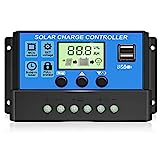
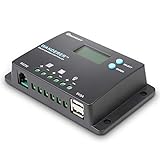


![[Upgraded] 30A Solar Charge Controller, 12V/ 24V Solar Panel Regulator with Adjustable LCD Display Dual USB Port Timer Setting PWM Auto Parameter](https://m.media-amazon.com/images/I/41opvkWthjL._SL160_.jpg)

